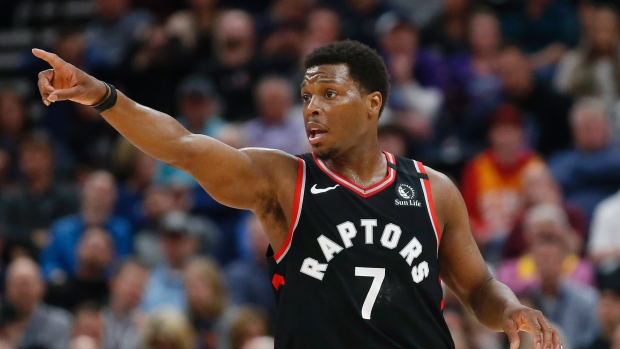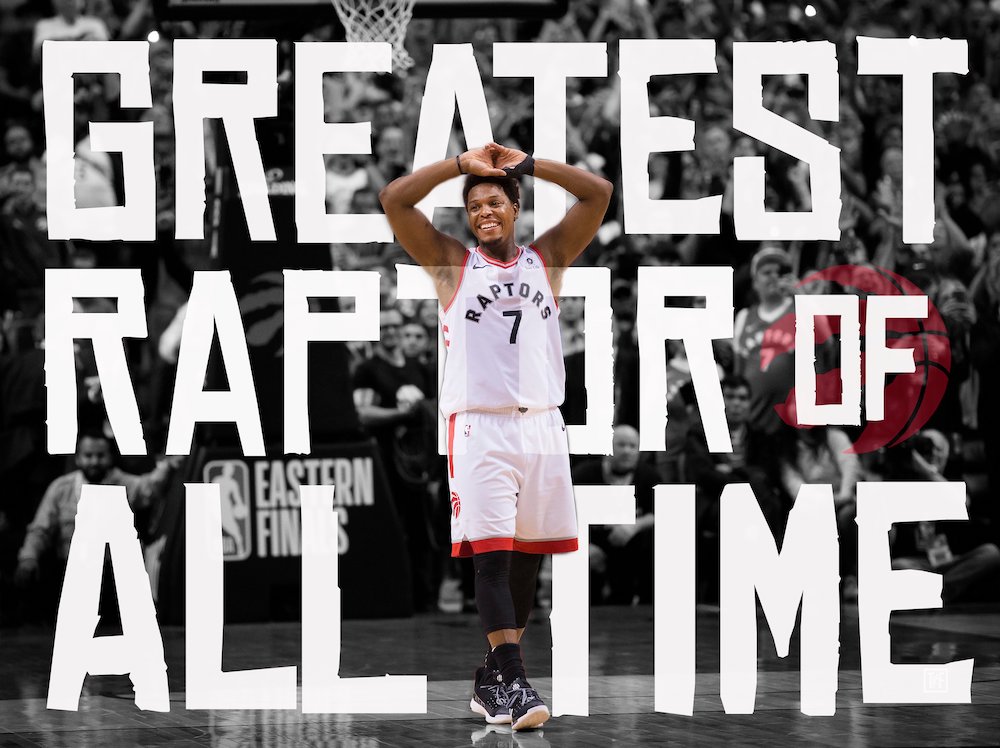As a member of the Toronto Raptors, Kyle Lowry played to win. He wore his heart on his sleeve and played every possession like it was his last because, well, he understood that in a sport as precarious as basketball any moment really could be. Nick Nurse called him the hardest working player he ever coached, and most Toronto Raptors’ fans would agree with that sentiment.
But Lowry played for more than just winning. Now, despite leaving to the Miami Heat, Lowry’s legacy in Toronto will last not just because of what he did on the court — including bringing the Raptors their first championship in franchise history — but more so because of the type of person he was off of it.
That might sound overly broad and sentimental to some of you who are still coping with the loss of Lowry, the player. But character is not some abstract concept and, in Lowry’s case especially, it goes a long way towards defining success. In fact, no one symbolized the importance of character and leadership better than Lowry, the leader of the Raptors for the majority of his tenure and one of the greatest leaders the city has ever seen.
Lowry showcased his standout character in a lot of different ways over the years — taking rookies under his wing, acting as a coach on the sidelines, being a professional by taking care of his body, etc. — but the characteristic that has always stood out to me is his ability to compartmentalize, flipping a switch between the game and, once the final buzzer sounds, the things that really matter in sports and in life.
As we know, Lowry is the ultimate competitor. Every time he steps onto the court, he flips the switch (from the 18 holes he played earlier that day, I assume) to competing. He plays harder than anyone else and sacrifices his body for the team, taking charges and diving at loose balls to do anything to win. He is so mentally focused on reading what the other nine players on the court are doing that there is no room to think about anything else in the midst of a game.
But when it ends, Lowry flips the switch again. He grabs the game ball for rookies who scored their first NBA bucket, for Fred VanVleet when he scores the franchise record 54-points, or for Sergio Scariolo getting his first win as an NBA head coach. He gives genuinely thoughtful post-game interviews during times of social upheaval. He hugs his competitors at half court as if he didn’t just spend 48-minutes doing everything possible to defeat them. He even managed to make being a dad look really freakin’ cool.
Kyle Lowry giving his son a quick kiss courtside is too cute 😘
(via @espn)pic.twitter.com/IYyIU6VKBh
— The Crossover (@TheCrossover) January 13, 2020
The @Klow7 legacy for me is what a present and loving father he’s been. He flipped a switch from intense competitor to loving father as soon as the final whistle sounded. Was so cool to witness up close. I respect how he made being a family man cool. #kylelowry over everything.
— Donnovan Bennett (@donnovanbennett) August 2, 2021
Sports fans themselves have gotten pretty good at compartmentalizing as a means to avoid cognitive dissonance, defined as “the mental discomfort that results from holding two conflicting beliefs, values, or attitudes.” We have become good at separating what a player does on the court versus the context in which they are playing, largely because we have no other choice. This is evident when we watch college sports and cheer on athletes who are putting their bodies on the line without pay, female athletes getting paid less than their male counterparts, Olympic athletes having to put up with the International Olympic Committee’s archaic rules, or even NBA basketball during a pandemic or social upheaval.
In team sports, we often find ourselves separating what an athlete has done off the floor from what they do on it in order to continue cheering on our team. Toronto Raptors’ fans, for example, still found ways to support their team last season despite the disturbing allegations against second-year guard Terence Davis II. In that way, we have become good at compartmentalizing.
But athletes are even better at it, and the stakes are much bigger. They have to compete against people who are their friends on some nights and play against people they genuinely dislike on others. They have to step away from whatever is going on in their personal lives in order to focus on the task at hand. They are masters at isolating the game from the various other things going on in their lives, such as playing basketball amidst a pandemic or amidst social upheaval, as we have seen recently in the NBA. Once an athlete steps onto the court, the good ones are able to flip a switch, muting whatever was on their minds beforehand so that they only have one thing on their mind: how do I win this game? Everything else is pushed to the wayside, at least until the game is over. Once the final buzzer sounds, they hit the switch again.
Kyle Lowry did this better than any athlete I have ever seen. He is a master at compartmentalization. And as I already hinted at, that can go a long way towards building a healthy culture and defining success. In fact, being a good leader demands you become good at compartmentalizing between various aspects of the organization in order to show that everybody within it matters. It’s rare for any player to care enough to do this, let alone your superstar, which is why it’s Lowry’s defining characteristic.
After watching Lowry flip that switch back and forth for nine years as a member of the Raptors, the moment I’ll remember most is the one that occurred directly after Lowry won his first championship and brought Toronto its first major sports championship in nearly 25 years. Instead of celebrating with his teammates or family — thinking about himself, as you would assume one would after reaching their ultimate goal — Lowry was once again thinking about the team; about others. He was seen searching out Raptors’ President of Basketball Operations Masai Ujiri, the man who kept Lowry in Toronto and ultimately built the team that won it all.
Ujiri was not on the court yet because he had just gotten physically harassed by a racist police officer in Oakland. Lowry found Ujiri in the stands and, while he couldn’t right the wrongs that had already taken place, he tried his best to focus Ujiri’s attention on the team.
Moments after Masai Ujiri’s altercation with a sheriff’s deputy at Game 6 of the 2019 Finals, Kyle Lowry was there to pull Ujiri onto the court and embrace him.
“We over here.” pic.twitter.com/M2x4xgmBJ5
— SportsCenter (@SportsCenter) August 20, 2020
Of course, Lowry couldn’t have known what Ujiri had just gone through, but after years of literally and figuratively putting everything in place for the Raptors, his sixth sense seemed to be telling him that something was missing within their celebration, so he went and found Ujiri. (That’s the version I’d like to believe, at least).
No moment better encapsulates the duality that is Kyle Lowry. No moment better shows the high-character man that Lowry is, and how he is just as good of a teammate off the court than he is on it. More than anything that happened on the court over the years, it’s because of moments like that that Raptors fans have taken so kindly to Lowry, giving him a personal chant following his biggest win in Toronto.
yeah i feel completely fine and normal thanks for asking pic.twitter.com/upzz5WRfCk
— Abdul Malik, WGC (@MarxGasol) March 24, 2021
There are players, and then there are leaders, and then there is Kyle Lowry, a truly singular force in the history of Toronto — neh, Canadian — sports. Lowry was the ultimate high-character person, and his ability to compartmentalize is what made him such a great leader for such a long time.
Of all the qualities that Kyle Lowry brought to Toronto, that’s the one I’ll miss most.



